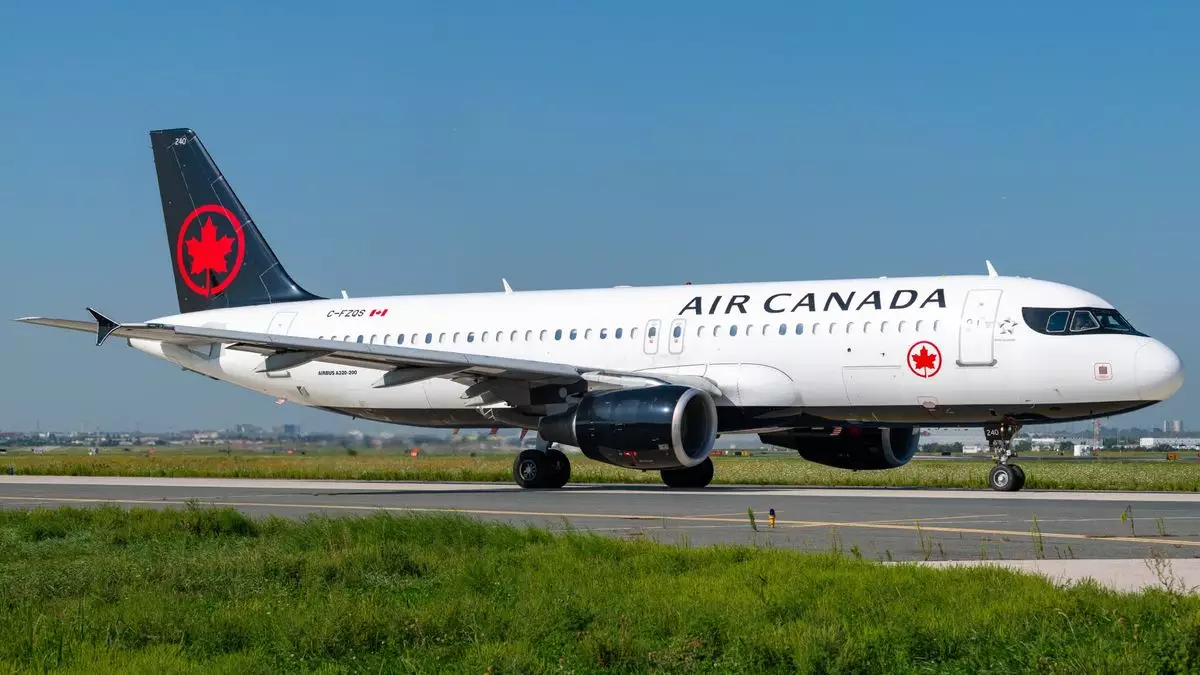In a significant resolution that could have far-reaching implications for the aviation industry in Canada, Air Canada has successfully negotiated a tentative labor agreement with the union representing its pilots. This new collective agreement arrives after prolonged discussions and aims to enhance the working conditions and remuneration of over 5,400 Air Canada pilots, ensuring the continuation of operations for the country’s premier airline.
While the specifics of the deal remain confidential until ratification by the union members and the airline’s board, it has been indicated that the prospective four-year agreement recognizes the substantial contributions made by pilots. This acknowledgment hints at an evolving corporate climate where employee welfare is paramount, yet it reflects the contrast between Air Canada’s impressive profit margins and the pilots’ demand for competitive wages. A substantial outcome of the agreement is the anticipated increase in earnings for pilots, estimated to generate an additional $1.9 billion over the contract’s duration, which suggests a recognition of pilots’ vital roles in the airline’s operations.
Charlene Hudy, Chair of the Air Canada Master Executive Council, emphasized the need for persistent advocacy and collective organization among pilots to bring about this agreement. This statement underscores an essential narrative in labor relations, where solidarity and relentless pursuit of equitable treatment often yield favorable results for labor organizations. The united front that the pilots adopted not only highlights their determination but also showcases the effectiveness of such approaches in modern labor negotiations.
In this context, the role of the Canadian government has been pivotal. Labor Minister Steven MacKinnon acknowledged the hard work of both parties and the contribution of federal mediators in averting a potential shutdown. The looming threat of a strike or lockout would have not only paralyzed the airline but also could have inflicted serious economic repercussions on the broader Canadian economy, given Air Canada’s role in transporting around 110,000 passengers a day. The government’s proactive involvement is a reminder of the need for dialogue and intervention in labor disputes, especially those that possess the potential to disrupt vital services.
However, the situation also evokes scrutiny regarding the necessity for intervention in labor disputes. Previous instances, such as the railway shutdown earlier this year, prompted government action, indicating a recurring theme of industrial unrest. Business advocates’ calls for binding arbitration to stop a potential airline shutdown further reflect the delicate balance between labor rights and economic stability. These discussions raise profound questions about the extent of government involvement in private negotiations and the potential implications for workers’ rights.
The successful negotiation between Air Canada and its pilots serves as a vital case study in labor relations. It emphasizes the importance of preparation and engagement from all parties involved, as well as the persistent efforts that are often required to bring about a negotiated agreement. Moreover, the relationship between unions and management can either enhance or impede an organization’s growth trajectory; thus, fostering an environment conducive to open communication and collaboration is critical.
As labor dynamics evolve, these negotiations illustrate shifting priorities within workers’ rights movements. While companies are focused on profitability and investor expectations, workers are increasingly vocal about receiving fair compensation—an ongoing tension that may shape the labor landscape in the years to come.
In light of this agreement, it is evident that labor relations within the airline industry, as well as in other sectors, will continue to be subjects of scrutiny and negotiation. The implications of the Air Canada agreement extend beyond mere contracts and touch on fundamental issues of fairness, economic sustainability, and the future of labor rights in an evolving market. The focus now rests on the successful ratification of this tentative agreement, the subsequent actions taken by both Air Canada and its pilots’ union, and whether this could herald a new era of cooperative labor relations across the industry.
While this outcome is a cause for optimism, it is essential to monitor how it can potentially influence others in the industry and serve as a blueprint for future negotiations in various sectors that face similar challenges.


Leave a Reply